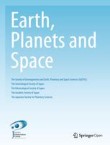Citation Impact 2023
Journal Impact Factor: 3.0
5-year Journal Impact Factor: 2.9
Source Normalized Impact per Paper (SNIP): 1.452
SCImago Journal Rank (SJR): 0.919
Speed 2023
Submission to first editorial decision (median days): 14
Submission to acceptance (median days): 162
Usage 2023
Downloads: 1,455,156
Altmetric mentions: 2,255
















































